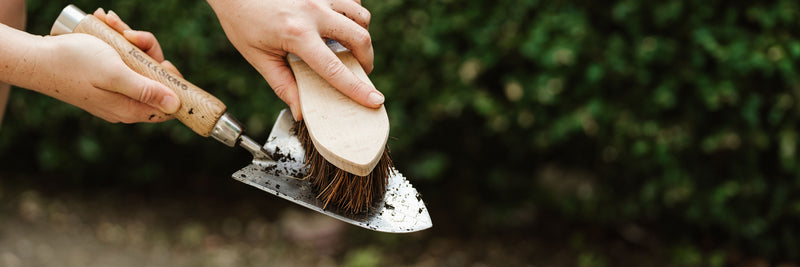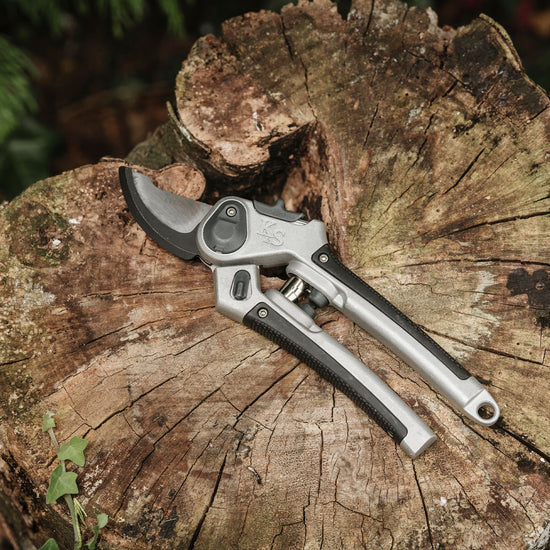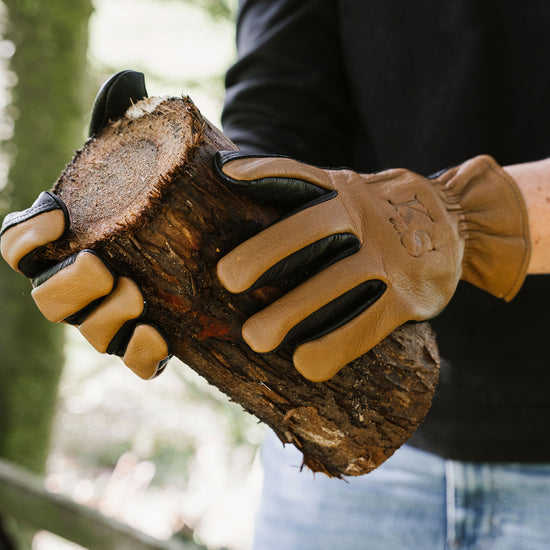Garden tools should last for years – or a lifetime if they’re maintained well. We recommend taking time to clean tools after use and occasionally carry out more intensive maintenance on them because we want your Kent & Stowe tools to perform at their best.
One key tip is to avoid leaving tools outside overnight, as this prevents them from being exposed to moisture from wet grass and dew, which can cause metal components to rust and wooden handles to weather. Always put your tools away in a shed, garage, or storage area after use.
Looking After Your Garden Tools
Cleaning and drying garden tools after use will keep them in good working order. Remove soil from metal parts of digging tools such as spades, forks, and hoes after each use by brushing any clods off with a stiff hand brush, then wash and dry them off with an old towel or cloth.

If a wooden handle is very dirty, brush off as much of the soil as possible. If you need to use water, gently wet the handle with a damp cloth, making sure that you don’t soak the wood – if you do, this may cause the grain to lift and the handle to swell. Wipe off as much of the water as possible and leave it to dry thoroughly. Never put tools away wet! Allow them to dry completely before storing, to prevent rusting or handle rot.
We also advise that you thoroughly clean tools which have been used for chemical applications. Fertilisers and chemicals risk rapidly corroding metal. Remember to clean out your watering can, too, if this has been used for chemicals.
Occasional Special Care
Perhaps a few times a year, if you have wooden-handled tools, apply a light coating of linseed oil to help prevent the wood from drying out and cracking. Older tools or those that do not have stainless steel parts will also benefit from occasional oiling – this is a perfect and rewarding job for a rainy day.
Secateurs, Saws, and Loppers
Cutting tools need particular care – they should be sterilised regularly to prevent the transfer of plant diseases. Submerge the blades in disinfectant, dry them with an old towel, then apply oil over the metal parts. Dried-on sap can be removed with wire wool. Find out more on why keeping cutting tools sharp is important.








